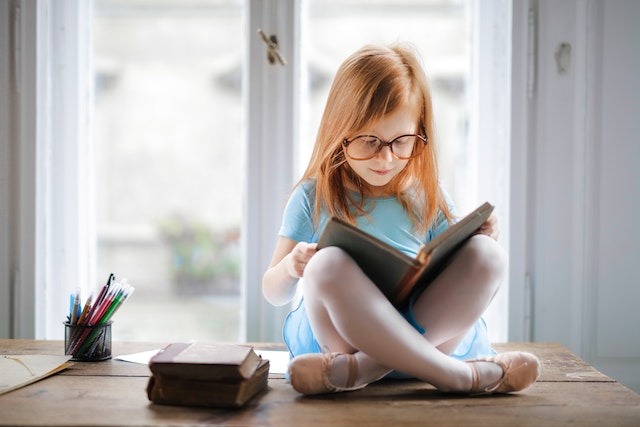
Fostering creativity has become an essential part of our children’s development in an increasingly digital environment where computers and devices frequently dominate our kids’ attention. Reading is a versatile, effective instrument that may greatly foster a child’s creativity. In addition to its well-known benefits for language skills and academic accomplishment, reading opens the door to a world of imagination that enables young people to explore new concepts, cultivate critical thinking skills, and become more creative. Today we’ll look at how reading may encourage your child’s creativity and provide tips for cultivating a lifetime love of books.
1. Expanding Horizons
Children who read are exposed to a wide variety of worlds, people, and events that they may not otherwise encounter. Through books, online or paper, students may travel to exotic locations, interact with a variety of characters, and learn about many cultures. You can encourage your child to read a book, paper or online– for example through the platform LUCA, which is a platform that offers readers personalized learning plans and AI-powered reading recommendations that are tailored to their interests and preferences, as well as cutting-edge technology that serves as a personal tutor for readers, to help students improve their reading skills. It delivers a tailored learning experience for readers by using sophisticated voice recognition to pinpoint the letter/sound combinations that they find difficult.
2. Vocabulary Enrichment
Expanding one’s vocabulary is one of reading’s most immediate advantages. Children learn new terms’ definitions and context-specific use when they read books, which exposes them to new vocabulary. A large vocabulary gives kids the skills they need to convey their thoughts and ideas more clearly, which improves their capacity for imaginative communication.
Children who have access to a wide variety of words are better able to use language to create vivid mental images, resulting in more imaginative and expressive stories, poetry, and ideas.
3. Storytelling Skills
It’s important to grasp how stories are written and told when reading them in addition to just appreciating the stories themselves. Children learn about story arcs, character development, plot twists, and other storytelling characteristics as they read. Their creativity may be stimulated as a result of this information, which may lead children to develop original stories and narratives.
Encouraging your child to play out scenes from their favorite books, create their own stories, or even illustrate them. Their participation in the narrative process fosters their creativity while also enhancing their writing and communication abilities.
4. Critical Thinking
Reading frequently forces readers to make moral judgments and difficult situational decisions. Children are taught to think critically and consider the effects of various actions made by characters as they interact with these aspects of books. Since it enables kids to consider thoughts and ideas from several angles, this critical thinking exercise is a crucial part of creativity.
Talk with your child about the books they read to strengthen this aspect. Encourage children to share their ideas and opinions in order to promote critical thinking growth and a greater comprehension of the subject matter.
5. Imagination and Visualization
Reading involves engagement, as opposed to passive media consumption. Children who read must use their imagination to picture the people, places, and things that are mentioned in the text. By strengthening their creative muscles, they may conjure up realistic events and pictures thanks to this mental activity.
Choose books that encourage your child to fully immerse themselves in the world of the tale in order to strengthen this element. Encourage them to sketch or write about the pictures in their heads as well to help them develop their imagination.
6. Problem Solving
Many books include people who must overcome difficulties that call for original thinking. Children gain useful problem-solving abilities that they may use in their own lives when they read about people overcoming various obstacles.
Encourage your child to talk about the issues that the characters in their favorite stories encounter and come up with solutions. This interactive method helps kids improve their creativity while also fostering the acquisition of useful problem-solving abilities.
Reading is still a potent instrument for encouraging youngsters to develop this crucial talent in a world where creativity is more appreciated and essential. Reading broadens one’s perspectives, improves vocabulary, fosters the art of storytelling, fosters critical thought, piques the imagination, and sharpens problem-solving skills. Additionally, it promotes empathy and emotional intelligence, helping kids grow into more kind and receptive people.
As parents and caregivers, we have a critical opportunity to encourage our kids’ love of reading. Access a variety of books, make your house a welcoming place for reading, and participate in discussions about the books your children read. You’ll be putting them on a route to a better and more creative future by doing this, which will also enhance their academic achievement.
Hey welcome to my blog . I am a modern women who love to share any tips on lifestyle, health, travel. Hope you join me in this journey!

Speak Your Mind